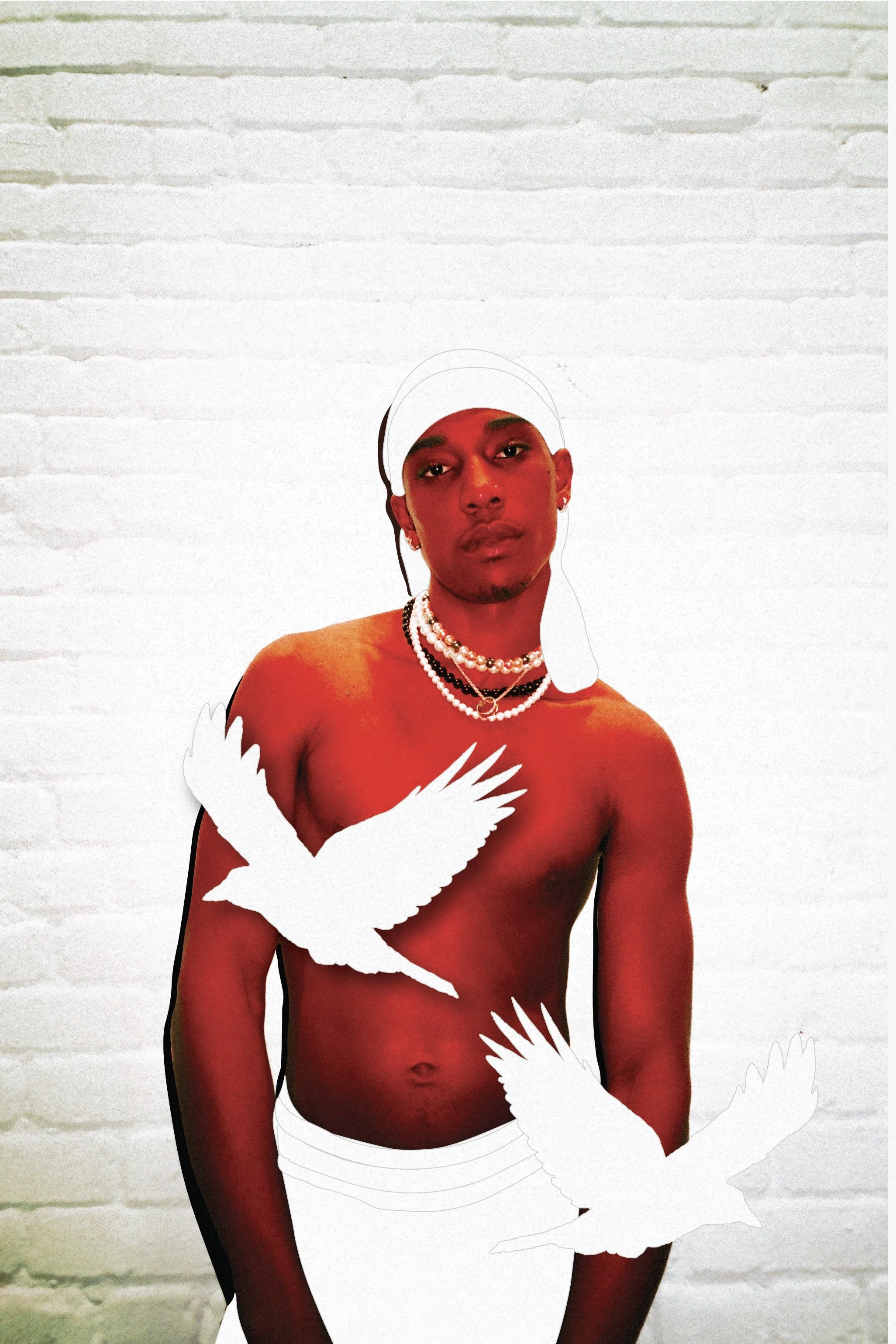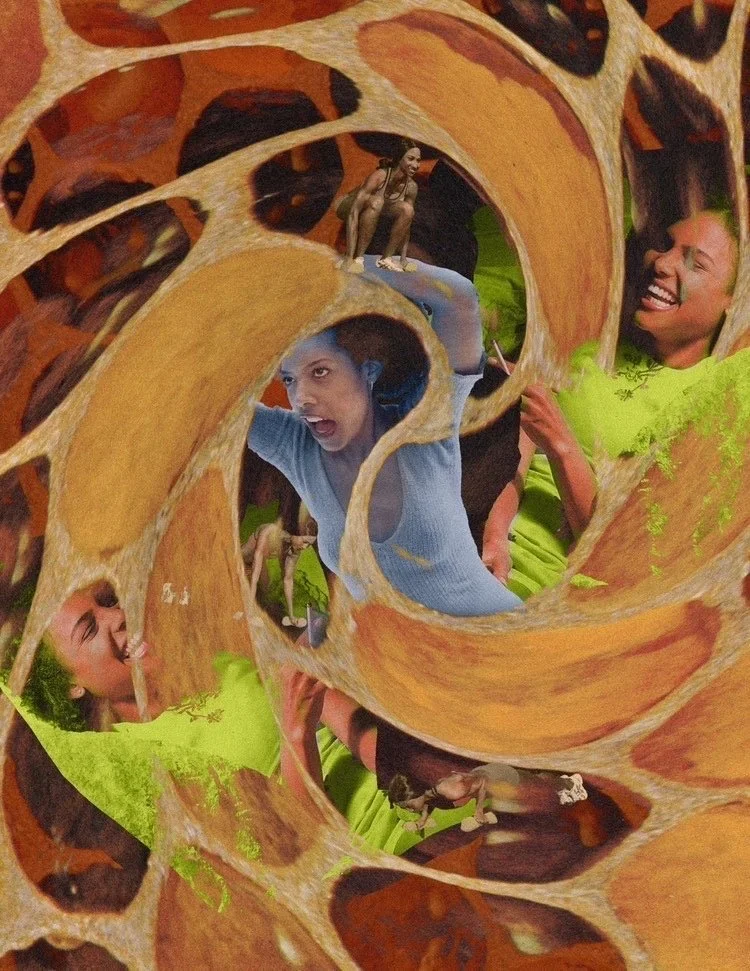Dreamer Reese, 2023Shadow Work 1, Mayowa Amosu, 2022Tactile in a techno world.
Tactilism is an Undergraduate Thesis project by Veralyn Wen, Art History Major/Curatorial Minor at Spelman College.
Reclamation is the power to self-define. Tactilism is a term I’m recoining to contextualize within the twenty first century highlighting the “tactile” relationship between digital culture and human agency informed by surveillance capitalist theory. Our social, financial, educational, and political mobility are now directly linked to our digital presences more than ever. The intimacies of the internet are what I explore within my thesis while bridging the art historical relevance through works by artists such as Stephanie Dinkins, Trevor Paglen, and Hyphen Labs.
One corner of my research touches on liberating cultural data within the digital age, in an artwork I've chosen by Stephanie Denkins, Binary Calculations are Inadequate. This art project began as a website, but further developed into an app that looks to dissect the exclusionary nature of artificial intelligence with elements of her own visual art practice embedded to represent the various parts of our social histories that are relevant to us based on questions fed into the platform. Other artists like Trevor Paglen create work about the intersection of human agency and digital culture, with a specific look at his artwork entitled Digital Autonomy. It prompts questions of privacy and democratic action to protect ourselves from the corruption of Big Tech and frames technology as a site of potential resistance and liberation. In looking at the ways in which we can create a liberating framework within the digital realm, scholars such as Melanie Hoff provide a template called the Digital Love languages– communion, consent, refusal, and renewal, which serve as pillars for tactilism as a method for encountering digital literacy. In nurturing and protecting our physical and virtual spheres, we can create a new structure of being that is completely stratified to grow the world we want to live in.
As we navigate the world where our physical and digital realities fluctuate, the focus is how the union of Art and Technology— under various guises of theory like Afro-futurism, Post-humanism, and Glitch Feminism, continue to shape humanity.
As an art history student, Veralyn is pursuing the focus of Art and Technology. She has grown from majoring in Physics to coming back to Digital Humanities and Art. She is from Philadelphia and is 22 years old and hopes to serve as the voice to connect musicians to opportunities and community through Musa, an app she’s developing with India Easton, Computer Science major at Spelman College.
Hopefully this project will inspire others to pour more intention and care in their everyday digital etiquette. In full, the primary center of the research questions how Digital Culture transforms, adapts, and affects our sensory experiences.
Do not own these Images. Untitled, Paula Lanzador, 2022

